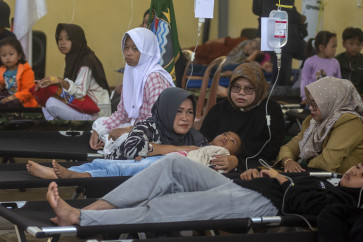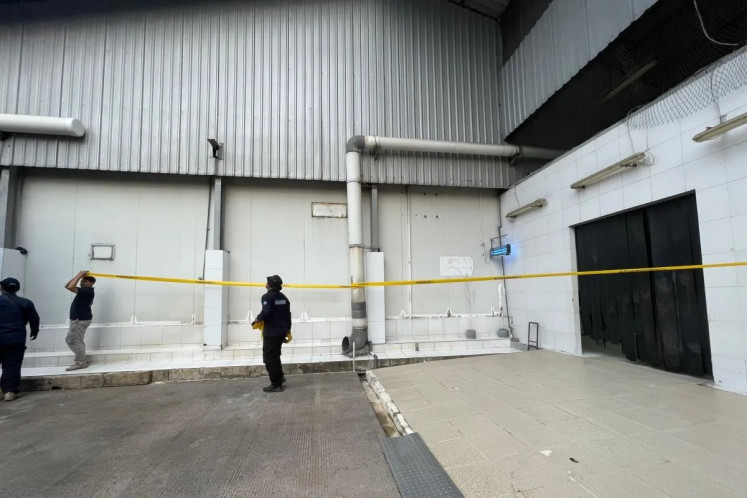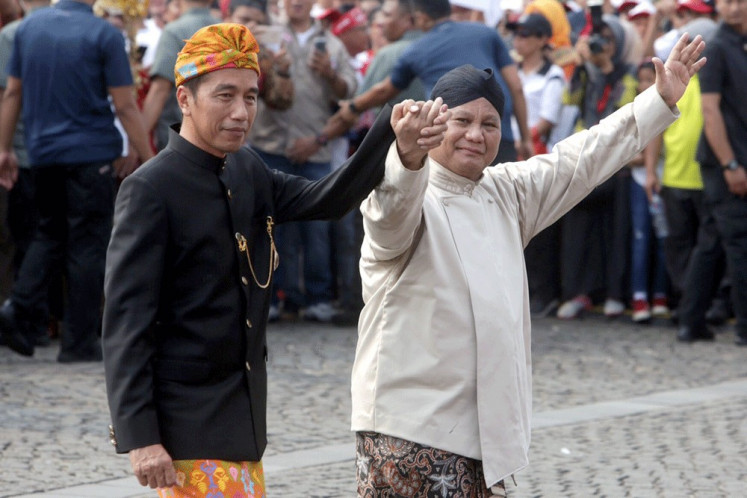Popular Reads
Top Results
Can't find what you're looking for?
View all search resultsPopular Reads
Top Results
Can't find what you're looking for?
View all search resultsFight graft with limits on cash transactions: PPATK
As part of the battle to stop politicians from stealing the budget and lining their pockets with bribes, the Financial Transaction Reports and Analysis Center (PPATK) has suggested limiting cash transactions to a maximum of Rp 100 million (US$10,350) each
Change text size
Gift Premium Articles
to Anyone
A
s part of the battle to stop politicians from stealing the budget and lining their pockets with bribes, the Financial Transaction Reports and Analysis Center (PPATK) has suggested limiting cash transactions to a maximum of Rp 100 million (US$10,350) each.
Frequently those caught with their fingers in the till have used cash to avoid being tracked by law enforcers.
In 2011, investigators from the Corruption Eradication Commission (KPK) arrested a businesswoman and two officials from the Manpower and Transmigration Ministry for involvement in a bribery scandal relating to a housing project in Papua. Investigators confiscated Rp 1.5 billion of bribes in a cardboard box that originally contained
durian.
In 2010, the KPK confiscated Rp 100 million in a brown envelope, wrapped in a newspaper. The money was confiscated from a street vendor in Bandung who allegedly received it from someone just before the investigators arrested a West Java Supreme Audit Agency (BPK) official and two Bekasi municipality officers for their part in a bribery case.
“Many of those arrested by KPK used cash in their transactions,” PPATK chief Muhammad Yusuf told a press conference on Wednesday in Jakarta.
“There will be no more durian boxes if we limit the use of cash payments.”
Under the new regulation, all transactions amounting more than Rp 100 million would be done through the banking system.
The PPATK has met officials from the Finance Ministry and central bank to discuss the plan, which the two institutions basically support.
“The central bank suggested that it should be the government who set up the scheme since it involves the interests of the public at large,” he said.
The measure would protect the public from counterfeiting and would reduce the cost of printing and distribution of cash, building a less-cash society.
Since October 2003, when PPATK started its activities, it has noted over 100,000 suspicious transactions among 12.2 million cash transaction reports. PPATK has submitted over 2,000 results of their analysis from 4,500 suspicious transactions to law enforcers, including KPK, the police and the Attorney General’s Office.
This year, PPATK will continue scrutinizing financial management.
“That includes the House budgetary committee,” Muhammad said, adding that his office maintained contact with KPK in monitoring 20 lawmakers under suspicion.
PPATK submitted the 20 names of lawmakers to KPK, including graft convicts Muhammad Nazaruddin (a former Democratic Party treasurer), Wa Ode Nurhayati (a former National Mandate Party lawmaker), and defendant Angelina Sondakh (a former Democratic Party lawmaker).
A 2012 PPATK study implies that since 1999, 42.7 percent of corruption offences by lawmakers were carried out during the current 2009-2014 tenure, with only 1 percent during the 2001-2004 tenure.
PPATK also found that there were at least 35 patterns of corruption and money laundering used by lawmakers between January 2003 and June 2012.
“Cash transaction is the most common. 15.7 percent of cases involved cash withdrawals and 12.7 percent deposits,” Muhammad said.










